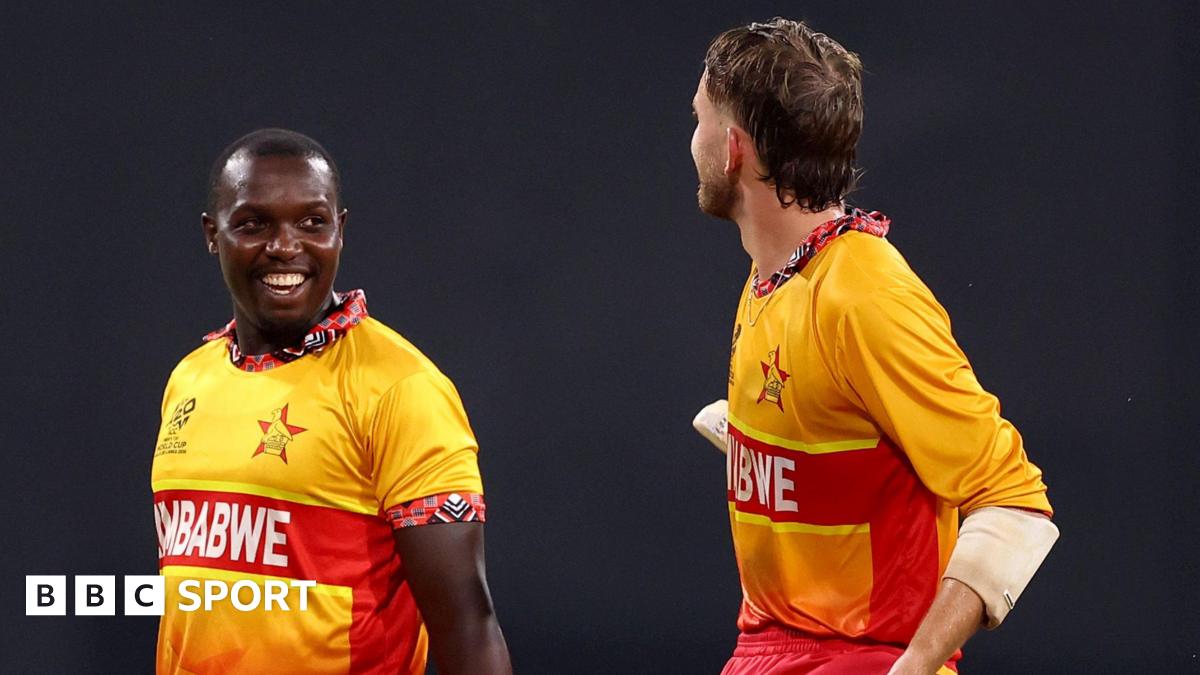T20 World Cup: Zimbabwe top Group B while West Indies cruise past Italy
Zimbabwe finished top of Group B at the T20 World Cup after stunning England’s next opponents Sri Lanka in a six-wicket victory in Colombo.
Both sides were already guaranteed their place in the Super 8s but Zimbabwe, who did not qualify for the last T20 World Cup in 2024, progress unbeaten after completing a fine chase of 179 with three balls to spare.
Opener Brian Bennett, who is yet to be dismissed in the tournament, followed his score of 64 not out in the famous win over Australia last week with an unbeaten 63 to steer home the chase.
He shared an opening stand of 69 with Tadiwanashe Marumani and, after Marumani fell for 34 and Ryan Burl 23, played the anchor role as captain Sikander Raza struck 45 from just 26 balls.
Raza and Tashinga Musekiwa fell in the penultimate over but, with eight runs needed from the last, Tony Munyonga emerged and hit a six before Bennett drove the winning runs through the covers.
Co-hosts Sri Lanka, who play England in both sides’ Super 8s opener in Pallekele on Sunday, dropped catches and leaked boundaries with misfields.
They were without injured bowler Matheesha Pathirana and fellow seamer Dushmantha Chameera, who was resting.
Pathum Nissanka, who also scored a fine century in Sri Lanka’s win over Australia, continued his form with 62 from 44 balls in his side’s 178-7.
Zimbabwe progress into a Super 8s group with co-hosts India, South Africa and West Indies.
Their first match is on Monday in Mumbai against the Windies, who beat Italy earlier on Thursday to continue their unbeaten record.
